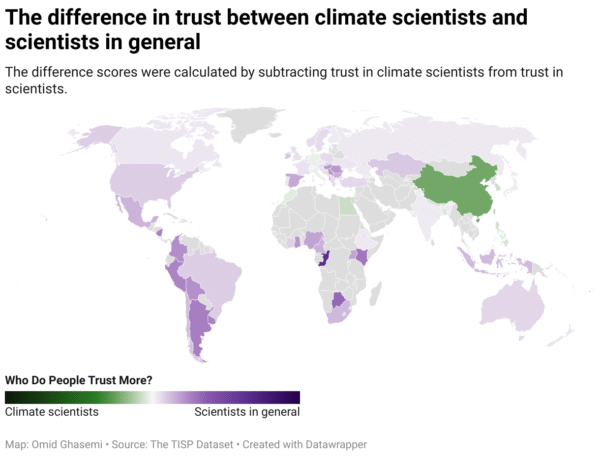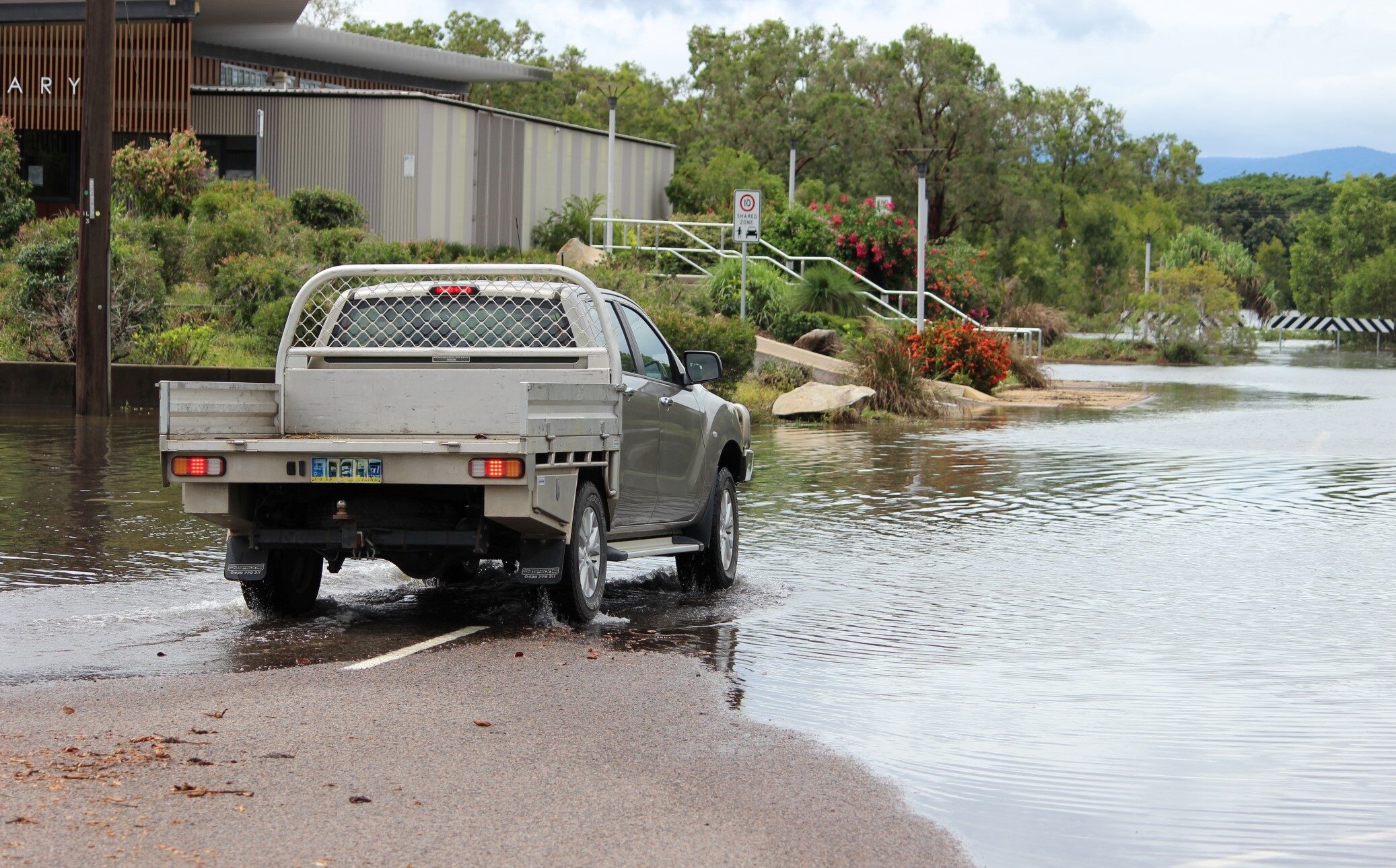A new study by a team from the UNSW Institute for Climate Risk & Response (ICRR), lrd by Dr Omid Ghasemi, compared responses from a survey of nearly 70,000 people across 68 countries.
Click here to read a PDF of the study.
The survey focused on the credibility of climate scientists against a broad criteria of ideological and demographic factors.
The research showed people with right-leaning (conservative) political views tended to distrust climate scientists more; this takes in countries like the US, Canada, Australia, United Kingdom and much of Europe.
“It’s arguably not a surprise that you see significant increases in the trust gap between climate scientists and other scientists in these countries,” Dr Ghasemi says.
“They have had decades of co-ordinated efforts by conservative political actors and fossil fuel interests to politicise climate science and undermine its credibility.”

Dr Ghasemi says another interesting result is those countries which show no significant association between ideology and trust in climate scientists.
“In some Eastern European, South-East Asian, and African countries, right-leaning individuals tended to trust scientists and climate scientists more,” Dr Ghasemi says.
“This might suggest that political leadership attitudes, rather than peoples’ political views, better explain these differences in trust.”
ABOUT THE SURVEY
The survey results, rated on a 5-point scale from 1 (not at all) to 5 (very strongly), revealed an overall average trust rating of 3.5 for climate scientists worldwide compared to 3.62 for scientists in general.
However, six countries, China particularly, bucked the trend entirely with significantly higher trust in climate scientists.
“We don’t exist in a vacuum.
“This research allows a new lens to view different factors that may influence how people view climate scientists – and the forces undermining public confidence in their work,” Dr Ghasemi says.
DEMOGRAPHIC DIFFERENCES
The survey data was collected as part of the Trust in Science and Science-Related Populism (TISP) project and took in 111 variable factors.
Dr Ghasemi’s analysis reveals non-political factors may also be linked to higher trust in climate scientists such as living in cities, stronger religious beliefs, valuing science or the scientific method or age.
Those who are elitist or believe common sense is better than scientific expertise are less likely to trust climate scientists, the study says.







